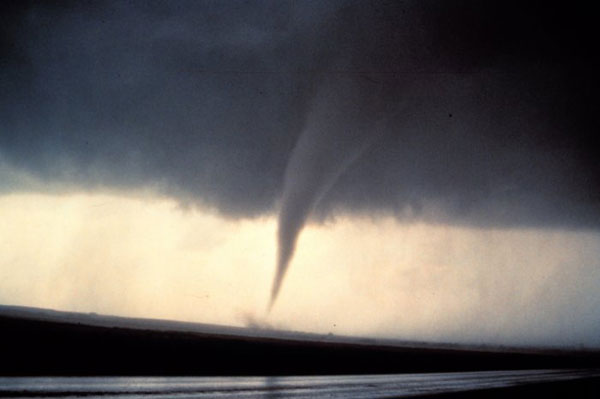Recent spring flooding across Canada, and the carnage wrought by tornadoes in the American Midwest, are terrifying reminders of the potential implications of climate change. Let's face it, Mother Nature is mad as hell, and she's not going to take it anymore. These dramatic climate events are a sign of what our planet is in for if we don't clean up our act and dramatically reduce our greenhouse gas emissions -- fast.
So-called "green jobs" are also top of mind for many politicians at every level of government, and for good reason. With fisheries in decline, oil and gas becoming harder and more expensive to extract, pine beetles on the offensive in B.C. forests and energy prices increasing every day, Canadians know we no longer rely on traditional resource industries alone to fuel our economy.
Last week, municipal representatives from across Canada met in Halifax for the annual Federation of Canadian Municipalities (FCM) conference. Climate change -- and how municipalities can prepare to deal with it -- were a hot topic, and to help frame that conversation, the Columbia Institute released our study, This Green House -- Building Fast Action on Climate Change and Green Jobs.
Financial innovations
The report examines the role Canadian municipalities can play in setting up financing programs for residential energy retrofits, whereby loans provided to homeowners by municipalities, financial institutions, utilities or other funders can be paid back gradually through small payments on property taxes or utility bills -- removing a key financial barrier for many homeowners.
Loan payments can be made from energy bill savings, and because municipalities are providing loans -- not grants -- to homeowners, there is no net cost to municipalities and their ratepayers.
In 2008, heating, cooling and electricity use in buildings accounted for 28 per cent of Canada's greenhouse gas emissions from energy use. Our research shows that modest investments in energy conservation in homes can save Canadian homeowners thousands of dollars, and dramatically and rapidly reduce greenhouse gas (GHG) emissions in Canada. With energy efficiency retrofits, Canadian homeowners have earned average energy savings of between 26 and 35 per cent per home.
And that's not all. Energy efficiency retrofits create 20 jobs -- green jobs -- for each $1 million invested, compared with the oil and gas industry in Canada, which creates only 5.2 jobs for each $1 million invested. Clearly, energy efficiency retrofits don't just make good environmental sense -- they make good economic sense, too.
Save money in the long run
So what's the bottom line? At current energy prices, a homeowner can double their return -- over $12,000 on an average $6,000 investment in energy efficiency over 25 years -- by making simple changes like upgrading hot water tanks, home heating and cooling systems, and improving weatherization and insulation of homes. With energy prices going up every year, the savings to homeowners will increase even more over time.
A small investment in one's home -- supported with loans provided at the municipal level -- will give homeowners significant energy savings that they can take to the bank. Successful programs in San Francisco, Portland and Colorado -- along with similar projects underway Winnipeg and Halifax -- show that these programs are both affordable and effective.
The concept of municipal financing of energy efficiency retrofits is gaining momentum across Canada -- with support from city councillors like Andrea Reimer in Vancouver, Charlie Clark in Saskatoon and Shelley Carroll in Toronto. In fact, the Vancouver City Council just approved an energy efficiency retrofit pilot project for Vancouver homeowners last week.
The next step is getting the regulatory changes necessary to make these kinds of partnerships possible in communities across Canada -- municipalities need the support of their provincial governments to establish municipal retrofit financing mechanisms
A modest investment in energy conservation will save homeowners thousands over time -- and save the environment at the same time. The time for action is now.
To download a full copy of This Green House -- Building Fast Action on Climate Change and Green Jobs, visit the Columbia Institute's website at http://www.columbiainstitute.ca/. ![]()
Read more: Environment















Tyee Commenting Guidelines
Comments that violate guidelines risk being deleted, and violations may result in a temporary or permanent user ban. Maintain the spirit of good conversation to stay in the discussion.
*Please note The Tyee is not a forum for spreading misinformation about COVID-19, denying its existence or minimizing its risk to public health.
Do:
Do not: